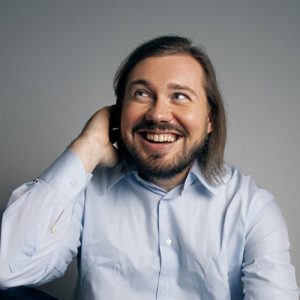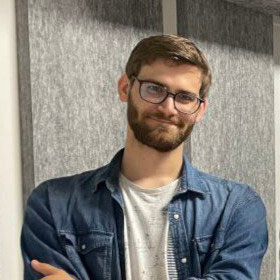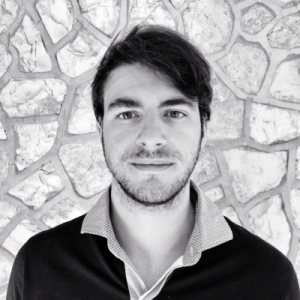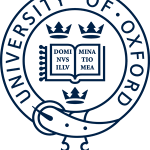
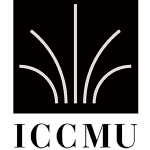
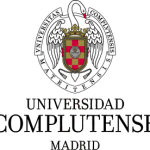
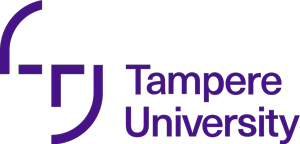

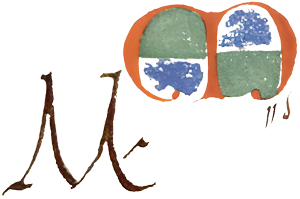
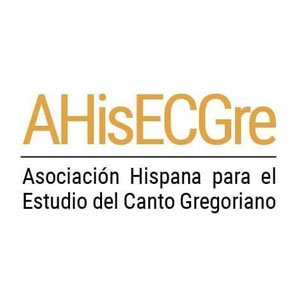
Lithuanian National Philharmonic Society
Repertorium Executive Team
Financial Manager – Anna Chudy
Project Leader – Julio Carabias Orti
Data Manager – John Anderson
Ethics Manager – Pedro Vera-Candeas
Communications Manager – Alicia Gutierrez Vega
Executive Board
- Jorge Calvo-Zaragoza (WP1 Leader)
- Dominique Crochu (WP2 Leader)
- John Anderson (WP2 Co-leader)
- Julio Carabias (Coord and WP3 Leader)
- Tuomas Virtanen (WP3 Co-leader)
- Fabio Antonacci (WP4 Leader)
- John Anderson (WP5 Leader)
- Luca Di Bernardo (WP6 Leader)
- Pedro Vera (WP7 Leader)
University of Jaén
The project leader is Julio José Carabias Orti, a senior researcher of Signal Processing for the Telecommunications Lab at the University of Jaen, who said, “We are very proud to be involved in REPERTORIUM, a project in which AI can be used not only to generate content and modernise the world, but also to drive tools that allow us to learn more about our own past, make discoveries in it, and transform the way we relate to our heritage and culture.” The University of Jaén contributes mainly to the technological outcomes of the project, focusing on AI and algorithmic-based Sound Source Separation, audio-to-score synchronisation, and Music Information Retrieval solutions.
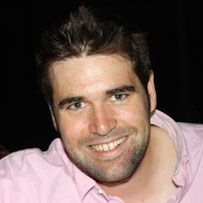
Julio José Carabias Orti
Signal Processing for Telecommunications Lab, Telecommunication Department
M.Sc. Computer Science (University of Jaén, 2006). Ph.D. Signal Processing (University of Jaén, 2011). Julio is an associate professor in the Telecommunication Engineering Department at the University of Jaén (Spain). His research interests are signal processing and machine learning applied to developing music signal processing applications, including music transcription, source separation and audio-to-score alignment. He has actively participated in research projects funded by the European Union, the Spanish Ministry of Science and Education (MEC) and private enterprises.
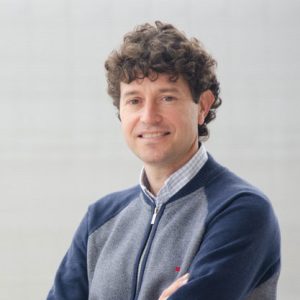
Pedro Vera-Candeas
Pedro Vera-Candeas was born in Madrid, Spain, in 1976. He earned an M.S. degree in telecommunication engineering from the University of Malaga, Malaga, Spain, in 2000 and completed his Ph.D. at the University of Alcala, Alcalá de Henares, Spain, in 2006. Since 2000, he has been affiliated with the Telecommunication Engineering Department at the University of Jaen, Jaen, Spain. Currently, he holds the position of Professor in the field of signal processing and communications. His primary areas of research interest encompass signal processing and its application to audio analysis and non-destructive testing (NDT). He has actively participated in research projects funded by the European Union, the Spanish Ministry of Science and Education (MEC) and private enterprises.
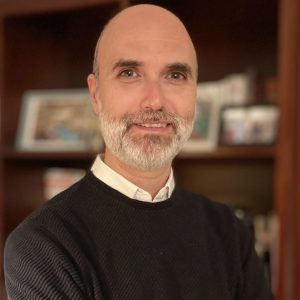
Francisco Jesús Cañadas-Quesada
Signal Processing for Telecommunications Lab, Telecommunication Department
Francisco J. Cañadas completed his doctoral studies at the University of Jaen (Spain) in 2009, where he is now an Associate Professor in Signal Processing and Communications. His research mainly focuses on signal processing and machine learning techniques for biomedical signal analysis and audio signal processing. He has been actively engaged in research initiatives supported by esteemed entities such as the Spanish Ministry of Science and Education (MEC), the Government of Andalusia, and private enterprises.
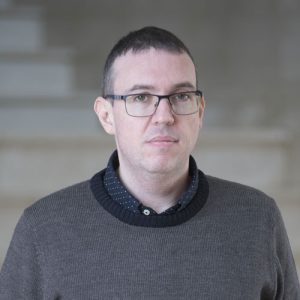
Pablo Cabañas Molero
Signal Processing for Telecommunications Lab, Telecommunication Department
Pablo Cabañas Molero received the M.Sc. and Ph.D. degrees in Telecommunication Engineering in 2008 and 2016, respectively. Pablo is a postdoctoral researcher in the Telecommunication Engineering Department at the University of Jaén, Spain. His areas of research interest include sound source separation, automatic sound classification, speech enhancement, and audio-to-score alignment.
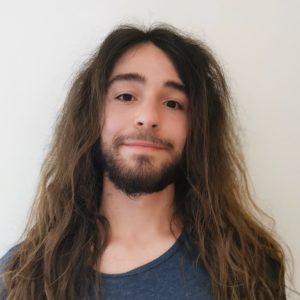
Jaime Garcia Martínez
Signal Processing for Telecommunications Lab, Telecommunication Department
Jaime García Martínez obtained his B.Sc. in Telematics in 2023. Jaime is a M.Sc student in the Master of Telecommunication Engineering at the University of Jaén. Jaime is deeply fascinated by signal processing and its boundless possibilities and real-world applications, especially those related to the music realm.
ODRATEK BV
ODRATEK, a subsidiary of Odradek Records, operates at the crossroads of technology and culture and is one of the main coordinators of the REPERTORIUM consortium. ODRATEK contributes to both the scientific and musicological objectives of the project. Its responsibilities include recording the orchestral sound samples at the company’s recording studio, The Spheres (Montesilvano, Italy), for training the Sound Source Separation neural networks; overseeing the Tridentine Rite recordings at the Abbey of Sainte Madeleine and the novel chants with the Schola Antiqua, and integrating these into Neumz (an ODRATEK product); aiding in the quality control and manual annotation of the images from the Solesmes archive to train the optical music recognition neural networks; aiding in the manual cataloguing of the Solesmes archive to evaluate music information retrieval results; testing and evaluating the technological outputs including the sound source separation, immersive streaming, Linked Data model, and front-end interfaces for these tools developed during the project; and overseeing prototypes and business plans for the resulting products and services. John Anderson, founder of ODRATEK, said, “Repertorium is the culmination of years of dedicated work, blossoming during this period of revolutionary AI advancements. It is thrilling to be at the forefront of this innovation as we harness the power of AI to unlock new possibilities and shape the future of music together with some of Europe’s greatest minds.”
John Anderson is the founder of Odradek Records and ODRATEK, a technology incubator based in the Netherlands, developing products in the cultural sector. During the pandemic, he published Neumz, the largest recording project in history, presenting the complete liturgical cycle of Gregorian chant. Inspired by this vast musical treasure, he helped to author the Repertorium project proposal.

Thomas Vingtrinier
Engineer
An engineer by training (Ecole Polytechnique, ENST Paris), Thomas developed solid skills in acoustics and in analogue and digital sound processing tools at IRCAM and Radio-France. By taking over the former Alive & Rhapsody studios in Montreuil, he founded Sequenza, a studio specialising in acoustic music. Playing an instrument in an orchestra allows him to speak the same sensitive and musical language as the musicians he records and for whom he regularly works as artistic director. Thomas also teaches sound recording and classical mixing at the Ecole Nationale Supérieure Louis-Lumière.

Fabrizio Bloemendal
Director
Fabrizio Bloemendal is a passionate and globally-minded Dutch professional, holding a degree in Economics and Commerce from La Sapienza University in Rome and is a corporate accountant and tax advisor in Dutch and Italian legislation. With a strong commitment to internationalizing businesses and fostering effective communication between different management styles and systems, Fabrizio has a rich background as a senior consultant in renowned consultancy firms. Expertise lies in company consultancy, due diligence, and financial and tax auditing, with extensive work in sectors including manufacturing, antiques, fashion, sports clubs, and non-profit organisations. As a lecturer at Cegos Italia he also contributes to the training and development of future professionals. His career is marked by a commitment to networking, personal relationships, and continuous learning, making him a valuable asset in the world of international business and finance. He is a member of the International Vat Association.
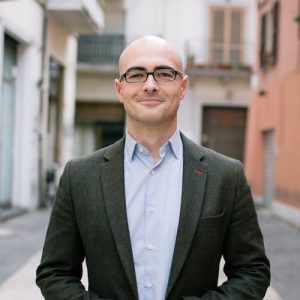
Enrique Valverde Tenreiro
Enrique Valverde has been the General Manager of Odradek Records since September 2017. A music consultant specialising in classical music, he has worked for the Spanish Centro Nacional de Difusión Musical (CNDM), the most important music promoter in Spain. He is also the founder and director of ExpoClásica, the first Classical Music expo in Spain, and has worked for Universal Music Spain, Caja Madrid Foundation and several other music foundations, agencies and orchestras.
He has a Master’s degree in Cultural Management and a global understanding of the classical music sector. He’s been fortunate to have worked in this industry from almost all sides: in public institutions (Production and Editorial Manager at the Centro Nacional de Difusión Musical – Auditorio Nacional in Madrid), private foundations (Production Manager at Fundación Caja Madrid and Fundación Caja Duero, and Production Assistant at Fundación Siglo), management agencies (Segura Management), record labels (Editorial Coordinator for Universal Music Spain), festivals (Artistic Coordinator of the Semana de Música Religiosa de Cuenca, Production Director of Florilegio Salmantino and Sweelinck Festival in Amsterdam), competitions (Coordinator of the Sweelinck Organ Competition), orchestras (General Manager of Orquesta Opus23), exhibitions (Orpheon Foundation of Early Music Instruments), music conferences (Director and Founder of ExpoClásica), and music education platforms (Intern at the Association of European Conservatories).

Alberto Díaz-Blanco
Neumz Director
Alberto Díaz-Blanco a professor of Hispanic Philology and an avid connoisseur of the liturgy and of Gregorian chant recordings (he owns the second largest collection of Gregorian chant recordings in the world). Member of the executive committee of AISCGre, Spanish section. He teaches Gregorian chant in the summer courses of the Benedictine abbey of Santa Cruz, near Madrid. He collaborates with Father Jerome F. Weber and his website chantdiscography.com in the compilation of Gregorian chant recordings.

Martina Cocci
Neumz Team
Martina Cocci, musicologist and archivist, specialised in Cremona at the University of Pavia. She furthered her studies on Gregorian chant at courses provided by the Italian section of AISCGre, attaining a Diploma of Advanced Studies in Gregorian Chant at Lugano Conservatory. Martina is in charge of the Italian translations for Neumz and manages much of the work of incorpoarting the chants into the Neumz app.

Fabio Cardone
Neumz Team
Fabio Cardone is a sound engineer at Studio Odradek “The Spheres”, in Pescara, Italy. He mixes and masters the thousands of hours of Gregorian chant recordings for Neumz. He has years of experience in studios and in live sound reinforcement.
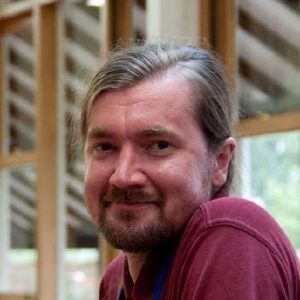
Andrew Hinkley
Neumz Team
Andrew is a mathematics graduate from New Zealand and major contributor to GregoBase. In 2008 he started putting the Graduale Romanum and Liber Usualis into Gregorio out of a desire to help promote traditional Liturgical Music and make it more accessible. He is working with the Neumz team to add ancient notation to chant scores and assist with the training of OMR.
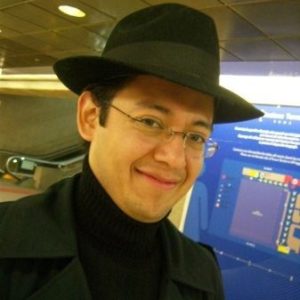
Raúl Orlando Arreguin Rosales
Neumz Team
Raúl Orlando Arreguin Rosales was a professor and the assistant choir director at the Pontifical Institute of Sacred Music, as well as a cantor and the archivist for the Cappella Giulia at St. Peter’s Basilica since 2008. The Cappella Giulia sings for all solemn functions of the Vatican, such as Holy Mass, Lauds, and Vespers, when these are not celebrated by the Pope (when instead the Sistine Chapel Choir sings). Before this, he served as an academic professor and the choirmaster for the Celaya Conservatory of Music in Mexico. He studied piano at the Conservatory of Celaya and choir direction at the Pontifical Institute of Sacred Music and is the founder of the Schola Cantorum Nova Hispania. Raúl is in charge of the English translations for Neumz.

Sofia Uspenskaia
Neumz Team
Sofia has a BA in classical studies (Moscow State University), studied languages in a Master’s program titled “European political and culture studies” (RANEPA, Moscow), and contributed to a project that prepared a new edition of Aristophanes with commentary. Her fields of special interest are translation from Latin, Latin and German poetry, poetics, narratology and narratological analysis of poetry. Sofia is in charge of the German translations for Neumz.
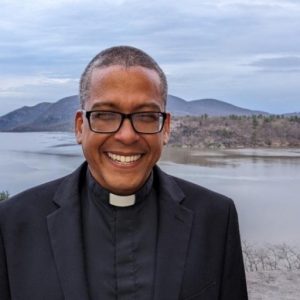
Father Miguel A. Trinidad Fonseca
Neumz Team
Father Miguel is a Catholic priest in the Archdiocese of San Juan of Puerto Rico. He is highly skilled in liturgy, theology, music composition, instrumental and choral arrangement, guitar playing, gregorian chant and musical teaching. Father Miguel is in charge of the Spanish translations for Neumz.
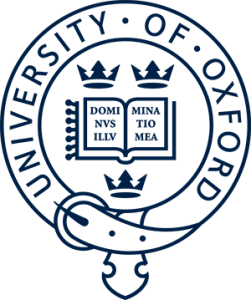
The University of Oxford
The University of Oxford is home to the Digital Image Archive of Medieval Music (DIAMM), an online database of all European polyphonic music sources before about 1600. During the course of this project, the archive will be expanded to include the photographic records of manuscripts of the Solesmes archive, comprising the majority of the world’s extant manuscripts containing monophonic Gregorian chants. Each image will be presented alongside metadata about the original manuscript source and the melodies and texts copied on each page. An API will be developed linking this data to other online databases referring to the same musical and liturgical content, ensuring consistency and avoiding duplication. Improvements to the online image viewer will be made, allowing visualisation of multiple versions of the image (e.g. negative, positive, enhanced contrast, etc). The staff of the university will also contribute to the cataloguing efforts of 128,000 of the approximately 2 million chants present in the archive. Dr Julia Craig-McFeely, director of DIAMM, says, “There is often a division between polyphony and chant in musicological research and resources, despite the fact that the majority of early polyphonic sacred music was derived from (and quotes) chant models. The REPERTORIUM project will allow us to link polyphony directly with its chant models. DIAMM is also a partner and collaborator in the Cantus Index database; by linking our datasets, DIAMM can enrich its image-delivery environment with the extensive research of the Cantus team while sharing image content with Cantus.”
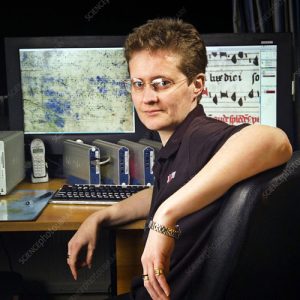
Julia Craig-McFeely
Director, DIAMM
Julia Craig-McFeely studied at Edinburgh University (BMus, MMus) with Michael Tilmouth, Kenneth Leighton and Peter Williams. She completed her DPhil on English Lute Manuscripts and Scribes 1530-1630 at the University of Oxford in 1994. Her research is primarily in Early Modern English manuscript studies, initially with English lute manuscripts and more recently in the codicology and palaeography of Tudor partbooks.
After several years as a college lecturer at a number of Colleges, and a Junior Research Fellowship at St Anne’s College, she ran a successful freelance business typesetting music and text that had particular difficulties in layout or design (including transcribing and setting Donizetti’s opera Elisabetta from his autograph, for the Royal Opera House, Covent Garden), and has since typeset a number of publications in musicology, including the award-winning Facsimile and introductory study of Bologna MS Q.15, by Margaret Bent, and Sam Barrett’s The Melodic Tradition of Boethius “De consolatione philosophiae” in the Middle Ages, (Monumenta Monodica Subsidia Series VII, 2 vols., Bärenreiter, Kassel, 2013). She is the General Editor and director of the production team of DIAMM Publications, many of whose publications have also received academic awards.
Julia Craig-McFeely has been the Project Manager of DIAMM (www.diamm.ac.uk) since 1998 and a Director since 2007. She has published and lectured in Europe and the USA both about her research and about the work of DIAMM, and in particular about creating high-quality images of archive documents and digital restoration. She has also lectured on intellectual property rights in relation to digital images. She is known internationally as an expert in archive-quality imaging of delicate documents and consults to a number of organisations, including the National Library of Ireland and the Israel Antiquities Authority. In 2008, she was one of the team of specialists who undertook the pilot project to digitise the Dead Sea Scrolls in Jerusalem.
She is an organist at two churches in Oxford, directs a number of choral groups in and around the city, and is an occasional composer and arranger.
Polytechnic University of Milan (Politecnico di Milano)
The Polytechnic University of Milan (Politecnico di Milano) is the largest technical university in Italy, offering undergraduate, graduate and higher education courses in engineering, architecture and design. Founded in 1863, it is the oldest university in Milan. The Image and Sound Processing Group (ISPG) was established in 1993 by Prof. Augusto Sarti and Prof. Stefano Tubaro. Three laboratories are part of the ISPG: the ISP Laboratory in Milan, the Sound and Music Computing Lab and the Musical Acoustics Lab. ISPG will develop methodologies for sound field reconstruction that will power Repertorium’s immersive streaming solution. This will allow users to freely navigate the virtual sound stage and become fully immersed when selecting among 360° video hotspots. This technology will be tested on two classical orchestra concerts. The solution will allow users the possibility of isolating or muting instruments in the orchestra of their choice, for example, to “listen in” on a particular part or mute it to rehearse in its place. Prof. Fabio Antonacci will coordinate the activities of the ISPG in the Repertorium project. Fabio Antoacci says, “We are very excited about taking part in the Repertorium project, which represents a breakthrough in the technology for streaming, giving everyone the possibility to take part in a concert in an immersive fashion”.

Augusto Sarti
Augusto Sarti received both his “Laurea” degree (joint BS-MS) and his Ph.D. in Electronic Engineering from the University of Padua, Italy, in 1988 and 1993, respectively, with research on nonlinear communication systems. His graduate studies included a joint graduate program with UC Berkeley, CA, USA (where he spent half of his doctorate). After a brief period as a Junior Researcher at UCB, in 1993, he joined the faculty of the Politecnico di Milano, Italy, where he is currently a full professor. He also held a Full Professorship (adjunct) at UC Davis, CA, USA, from 2013 to 2017.
His research interests are in the area of multimedia signal processing, with a particular focus on audio and acoustic signal processing (space-time audio processing, sound analysis, synthesis and processing). He also worked on topics of music information processing, image analysis, 3D vision, multidimensional signal processing and nonlinear processing.
In the area of sound synthesis, his main contributions are in the development of generalised Wave Digital Filters, which model general reflection filters and nonlinear elements. In the area of space-time audio processing, he focused on the development of visibility-based beam tracing solutions for interactive soundfield modelling and rendering. He also contributed to the field of acoustic scene estimation and environment estimation based on microphone arrays with novel geometric methodologies, which have been the topic of the EC-funded SCENIC project, coordinated by him. His latest contribution to geometric space-time audio processing is the development of novel soundfield imaging (capturing/rendering technologies, which focus on the plenacoustic function for applications of acoustic scene analysis and reconstruction. More recently, these solutions were turned into the definition of soundfield maps and the ray space transform for acoustic scene analysis, processing, manipulation and rendering. In the area of Music Information Processing, he focused on the extraction of high-level music descriptors, evolutive musical genre estimation, musical information extraction (e.g. beat trackers, harmonic trackers, drum transcription); content-based semantic search of music as well as movement in dance (Wholodance EU Project). He is currently applying machine learning methods to the timbral, acoustic and vibrational characterisation of acoustic musical instruments in collaboration with the Violin Making District and the Violin Museum of Cremona, Italy. In the area of computer vision, he focused on a wide range of solutions for 3D vision, covering self-calibration of multicamera systems, camera egomotion estimation, depth estimation, surface reconstruction (including surface fusion and fast levelset modelling), using methodologies from projective geometry and geometric algebra. In the area of nonlinear system theory, he developed solutions for the exact algebraic inversion of Volterra systems of arbitrary order.
He also worked on a variety of other topics and applications, including 3D data analysis (GPR analysis, fracture estimation); multidimensional signal processing (signal decimation in multidimensional lattices and filter design); video analysis for surveillance applications; gesture and face recognition; motion vector estimation; tempering detection; non-holonomic motion planning on Lie Groups and Lie Algebra; voice and sound classification; speaker recognition; and more.
He co-authored over 300 journal and conference articles, as well as numerous patents in the areas of multimedia signal processing. He also promoted, coordinated or contributed to numerous research Projects (25+ EC-funded projects to date). He is a co-founder of the Image and Sound Processing Group of the Politecnico di Milano, and its first laboratory, the Image and Sound Processing Lab (Milano Leonardo Campus). He established two more laboratories: the Sound and Music Computing Lab; and the Musical Acoustics Lab. He currently coordinates the activities of both such labs, which are very active internationally, with several projects funded by companies within and outside the EU. In 2005, he started the new track of “Sound and Music Engineering” within the MS of Computer Science and Engineering of the Politecnico di Milano, Como Campus (in collaboration with the Como Conservatory of Music), which for over 10 years, graduated over 30 new experts a year in the areas of audio and acoustics. Starting from the Ac.Yr. 2018-19, this didactic track has become a full-blown M.S. program named “Music and Acoustic Engineering”, offered in Milano and Cremona.
As a Senior Member of the IEEE, he is actively involved in IEEE events and committees. He is an elected member of the Audio and Acoustics Signal Processing Technical Committee (AASP-TC). He is currently Senior Area Editor of IEEE Signal Processing Letters and Associate Editor of IEEE/ACM Transactions on Audio Speech and Language Processing. Since 2019, he has been a member-elect of the Board of Directors of the European Association for Signal Processing (EURASIP), with the role of Director for Conferences. He was the founder and chairman of the EURASIP Special Area Team (SAT) on “Acoustic, Speech and Music Signal Processing” (ASMSP), from 2016 to 2018, and is currently a member of the same SAT. He is a co-founder and member of the European Acoustics Association (EAA) Technical Committee on Audio Signal Processing. He has served as guest editor for numerous special issues of international journals (IEEE Tr. on Instrumentation and Measurement, EURASIP J. on Advances in Signal Processing, etc.). He was co-chairman of the 2005 Edition of the IEEE Intl. Conf. on Advanced Video and Signal-based Surveillance (AVSS); and chairman of the Digital Audio Effects Conference, DAFx, 2009. He was on the organising committee of the 2014 edition of the IEEE Intl. Conf. on Acoustic Speech and Signal Processing (ICASSP 2014); and of the 2009 edition of the ACM/IEEE Intl. Conf. on Distributed Smart Cameras (ICDSC-09). He was the Technical Program Co-Chair of the IEEE Intl. Workshop on Haptic Audio-Visual Environment and Game (HAVE-09) as well as of the 2018 edition of the European Signal Processing Conference (EUSIPCO). He is currently co-chairman of the 2019 edition of IEEE Intl. Workshop on Applications of Signal Processing to Audio and Acoustics (WASPAA). He has been invited as a keynote speaker to several International Conferences, including the International Workshop on Multidimensional Systems (nDS13); and the 2017 edition of IEEE WASPAA. He has held several major Conference Tutorials, including one at EUSIPCO 2013 in Bucharest and one at EUSIPCO 2016 in Budapest. In 2017, Augusto Sarti received the “Outstanding Editorial Board Member Award” by the Signal Processing Society of the IEEE.
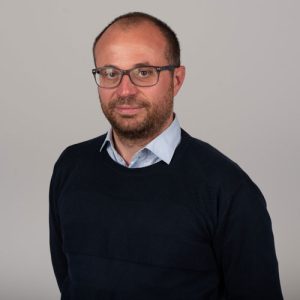
Fabio Antonacci
fabio.antonacci@polimi.it
Fabio Antonacci was born in Bari (Italy) in 1979. He received a Laurea degree in 2004 in Telecommunication Engineering and Ph.D. in Information Engineering in 2008, both at Politecnico di Milano, Italy. He is currently an associate professor at the Politecnico di Milano. His research focuses on musical acoustics, in particular on the development of innovative non-invasive measurement methodologies. He is also active in the areas of space-time processing of audio signals for both speaker and microphone arrays (source localisation, acoustic scene analysis, rendering of spatial sound) and on the modelling of acoustic propagation (visibility-based beam tracing). He is the author of more than 130 articles in proceedings of international conferences and peer-reviewed journals.
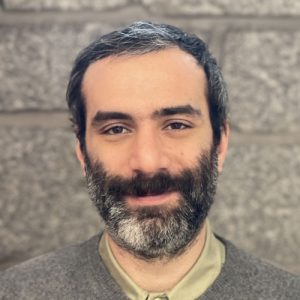
Luca Comanducci
luca.comanducci@polimi.it
Luca Comanducci was born in Genova, Italy, on May 07, 1991. He received a B.Sc. in Music Information Science from the University of Milan, Milan, Italy, in 2014, an M.Sc. in Computer Science and Engineering and a Ph.D. in Information Technology from Politecnico di Milano, Milan, Italy, in 2018 and 2022, respectively, where he is currently working as a postdoc. His main research interests concern the application of Deep Learning techniques to spatial audio problems, Networked Music Performance and Music Information Retrieval.
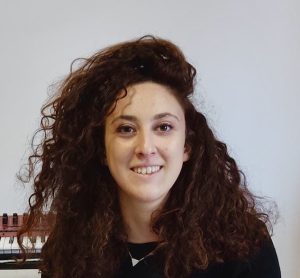
Francesca Ronchini
francesca.ronchini@polimi.it
Francesca Ronchini received a double Master’s Degree in Computer Science in 2017 from Politecnico di Torino (Italy) and Universitat Politecnica de Catalunya (Barcelona, Spain). In 2020, she obtained a Master’s Degree in Sound and Music Computing at Universitat Pompeu Fabra (Music Technology Group, Barcelona, Spain). From 2020 to 2022, she joined the MULTISPEECH team at the National Institute for Research in Digital Science and Technology (INRIA, Nancy, France), where she worked on Sound Event Detection applied to different domains. In 2022, she joined the Image and Sound Processing Lab (ISPLab) at Politecnico di Milano as a Ph.D. student. Her research focuses on exploring Deep Learning approaches for Machine Listening applications and their interdisciplinary utilisation and space-time processing for audio applications.
Federico Miotello was born in Gallarate, Italy, in 1995. He received his bachelor’s degree in Computer Science from the University of Milan in 2019 and his master’s degree in Music and Acoustic Engineering from Politecnico di Milano in 2022. In November 2022, he joined the Image and Sound Processing Lab (ISPL) at Politecnico di Milano as a PhD student. His main research interests are related to arrays of audio transducers and audio signal processing techniques based on deep learning.
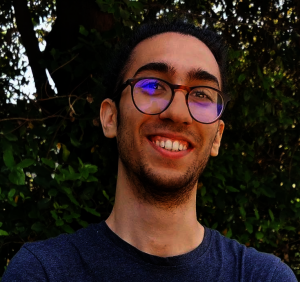
Gioele Greco
Gioele Greco received his B.S. degree from Politecnico di Milano, Italy, in 2019, in Mechanical Engineering and his M.S. degree (cum laude) from Politecnico di Milano, Italy, in 2020, in Computer Engineering – Musical Acoustics. He is currently a Ph.D. student at Politecnico di Milano, and his main reseach interests are intelligent spatial audio, Wireless Acoustic Sensor Networks and acoustics
Paolo Ostan was born in 1999 in San Donà di Piave, Italy. He received his B.S. degree from University of Padova in 2021 in Computer Engineering and his M.S. degree (cum laude) from Politecnico di Milano in 2024 in Music and Acoustic Engineering. In May 2024, he joined the Image and Sound Processing Lab (ISPL) at Politecnico di Milano as a research fellow. His main research interests are related to spatial audio processing and real-time signal processing.
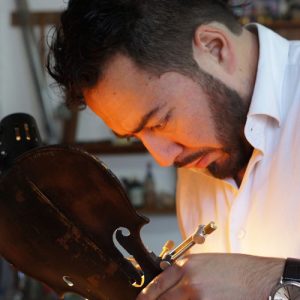
Sebastian Gonzalez
A physicist by training, earned his PhD in the Netherlands before a chance encounter with a 13th-generation family of violin makers from Germany stirred his fascination for the craft. This new interest, coupled with his experience running a guitar shop in Valparaiso, Chile, led him to Cremona, Italy in 2019. There, he delved into the acoustics of musical instruments at the Politecnico di Milano. Now, Sebastian combines his technical expertise with his love for music, utilizing computer simulations, artificial intelligence, and hands-on experiments to unravel the mechanics behind the unique sound of the violin.
Mirco Pezzoli received the M.S. degree (cum laude), in 2017, in computer engineering from the Politecnico di Milano, Italy. In 2021 he received the Ph.D. degree in information engineering at Politecnico di Milano. After two years as a Postdoctoral Researcher, he joined the department of electronics, information and bioengineering as junior assistant professor. His main research interests are space-time audio signal processing for augmented reality applications and musical acoustics.
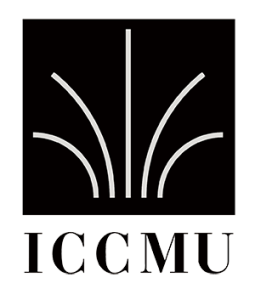
Instituto Complutense de Ciencias Musicales (ICCMU)
The Instituto Complutense de Ciencias Musicales (ICCMU) is a university centre attached to the Universidad Complutense de Madrid whose purpose is to promote scientific research, as well as the recovery and dissemination of musical heritage and specialised teaching.
ICCMU was the recipient of funding from the European Research Council (ERC) under the European Union’s Horizon 2020 research and innovation programme for the DIDONE Project (grant agreement no. 788986), whose scope is to use big data analysis to map emotions in 18th-century Italian opera by analysing all the arias composed on texts by the librettist Pietro Metastasio (1698-1782). This corpus contains a comprehensive catalogue of emotions in music, a unique window of opportunity to scrutinise conventions that defined music expression and meaning for over a century. This required transcribing into digital computer-readable format thousands of handwritten scores, a process which is ongoing. ICCMU will contribute to Repertorium by furnishing the corpus of thousands of already transcribed scores to train AI optical music recognition for handwritten classical notation and will benefit from the project by using this technology to increase the digitisation effort of 18th-century arias.
ICCMU oversees the cataloguing of the Solesmes archive. 128.000 chants will be manually catalogued, and the rest will be matched with existing online catalogues or with concordances among the manually catalogued chants in the Solesmes archive using AI-based music information retrieval techniques. An opera will be staged by the Nereydas Orchestra in Spain, featuring music whose scores are prepared using the project’s technology.
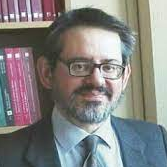
Alvaro Torrente
Director
Full Professor of Musicology at the Complutense University of Madrid, Álvaro Torrente, son of the Cervantes Prize Winner for Literature, Gonzalo Torrente Ballester, has a degree in musicology from the Universidad de Salamanca (1993). He also holds a doctorate from the University of Cambridge, where he wrote a thesis entitled The Sacred Villancico in Early Eighteenth-Century Spain: the Repertory of Salamanca Cathedral (1997). He studies Hispanic Philology and Education at the Universidad de Salamanca and currently follows the official degree course in Piano and Music Theory at the conservatories of Salamanca and Madrid.
He has worked at the Royal Holloway – University of London (1997-1998) and the Conservatorio Superior de Música de Salamanca (1998-2000). He spent time as a visiting professor at New York University (1999) and Yale University (2009-2010), and was Spain’s representative on the Directorium of the International Musicological Society (2007-2017). His prestigious international career has seen him regularly participating in congresses organised by the American Musicological Society, the International Musicological Society and the Biennial Conference of Baroque Music. He also lectures at numerous universities in countries such as the United States, the United Kingdom, Italy, Austria, Germany, Portugal and Cuba.
His research primarily concentrates on vocal genres. Specialising in the study of Italian opera, he published *La ópera en España e Hispanoamérica* (ICCMU, 2002) with [Emilio Casares](http://www.filosofiadelamusica.es/bio/ecas.htm); directed the complete edition of Francisco Cavalli’s operas for Bärenreiter Verlag with Ellen Rosand and Lorenzo Bianconi, and has published several other articles on Italian opera. Furthermore, he collaborates closely with European theatres to recover operas such as “La Calisto” and “Ercole Amante” by Cavalli and “Orontea” by Cesti, which have been used in stage productions at the Bayerische Staatsoper (Munich), the Royal Opera House (London), the Nederlandse Oper (Amsterdam), the Theatre Basel (Basel), the Oper Frankfurt, as well as the Teatro Real in Madrid. He also researches music in Spanish Golden Age theatre, as well as the relationship between poetry and music, reconstructing the lost sound of Baroque dance songs such as the Jácaras, Zarabandas, Seguidillas and Chaconas, which have been performed in numerous countries and recorded on several CDs by Raquel Andueza and La Galanía.
As the Director of the Instituto Complutense de Ciencias Musicales since 2014, he directs the magazine *Cuadernos de Música Iberoamericana*, the Música Hispana collection of texts and scores, as well as the Master’s Degree in Cultural Management at the Complutense Universidad of Madrid.
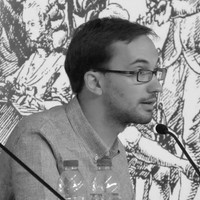
Lluís Bertran
Lluís Bertran has a Ph.D in Musicology (University of La Rioja/University of Poitiers, 2017). Previously, he obtained a Master’s Research Degree at the University of Paris-Sorbonne (2011). His research has focused on 18th-century instrumental music and musical sources in Spain, urban musical experience in 18th-century Barcelona and, more recently, the circulation of music and musical instruments between Spain and colonial Spanish America. He has published several scientific articles and a critical edition of 12 string trios by Gaetano Brunetti (ICCMU, 2012). He has been an assistant of the digital resources scientific supervision at the Centre de Musique Baroque de Versailles (www.philidor.cmbv.fr/) (2012-13), a collaborator of the ANR research group ‘Musique d’Église en France à l’Époque Moderne (Muséfrem)’ (http://chec.uca.fr/article131.html) (2011-14) and since 2009 a member of the research group I+D+i ‘Música en España: Composición, Recepción e Interpretación’ (www.unirioja.es/mecri). He has been a professor at the Master’s Program in Musicology at the University of La Rioja (2018-2019). He is now the scientific editor at the Instituto Complutense de Ciencias Musicales (ICCMU) in Madrid.
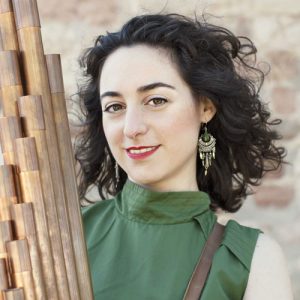
Cristina Alís
Cristina is a dynamic figure in medieval music, excelling as a musicologist, performer, pedagogue, and cultural manager. Her academic achievements include a groundbreaking doctoral thesis jointly pursued at Würzburg University in Germany and the Schola Cantorum Basiliensis in Switzerland, focusing on a newly discovered early 13th-century Gradual-Troper-Sequentiary and its Aquitanian notation. She has made notable contributions to musicology, including uncovering a new concordance related to the 14th-century motet, Robertsbridge’s “Flos vernalis,” and pioneering work on diminution and ornamentation techniques (presented in 2021 at the Oxford University Seminar convened by Margaret Bent). Cristina’s passion extends beyond academia; she collaborated with master craftsman Walter Chinaglia to reconstruct a 13th-century portative organ, revitalizing a piece of musical history. Cristina’s scholarly work includes publications on Frankish liturgical chant and an upcoming entry in the Encyclopedia of Tablature. As an educator, she has taught medieval music and portative organ since 2011 at Medieval Music Besalú and since 2015 at the Centre International de Musiques Médiévales de Montpellier and the Université Paul Valéry de Montpellier. She founded the Mirabilia Semana Medieval de la Catedral de Cuenca in 2022, a testament to her commitment to expand knowledge on medieval music and its context. Cristina’s musical prowess shines through her performances with esteemed ensembles and as the leader of the ensemble Merveill, dedicated to the Ars Subtilior. With bachelor’s and master’s degrees in piano, Cristina’s expertise in chamber music, orchestral compositions, and Lied accompaniment is evident. She further promotes medieval music through collaboration with Catalunya Música radio, bridging past and present through the “Sons llunyans” program. In summary, Cristina’s journey underscores the transformative power of music, seamlessly blending scholarship, performance, and education to illuminate medieval musical heritage.
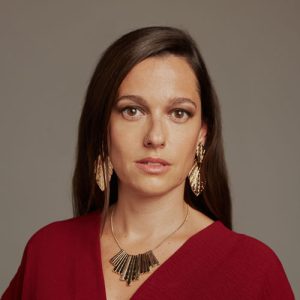
Lucía Martín-Maestro Verbo
Lucía Martín-Maestro Verbo is a musicologist and a medieval music singer, graduate from the Royal Conservatory of Music of Madrid (RSCMM). She holds a master’s degree in Medieval Music Performance, from the Sorbonne University and the National Conservatory of Music and Dance in Paris (CNSMDP), under the tutelage of Katarina Livljanic, Brigitte Lesne. She has been granted for being part of different research projects on medieval musical at Columbia University in New York (USA) and at Universidad Autónoma de Mexico in CDMX (UNAM).
Her curiosity to extend her knowledge beyond music, has led her to study for a diploma Graduate Diploma in Protection and dissemination of the Latin American artistic heritage by the Royal Academy of Fine Arts of San Fernando, also a master’s degree in Artistic, Literary and Cultural Studies, and another master’s degree in Teacher training, with a major in music education, both from the Universidad Autónoma de Madrid. She is currently studying a master’s degree in Musicology Research at the Sorbonne University and a diploma (DEM) in Medieval Music at the Noisiel Conservatory under the tutelage of Raphaël Picazos.
In the field of performance, she is the founder and artistic director of EGERIA, a medieval music ensemble that has been widely recognized in recent years, winning the MIN Award 2024 for Best Classical Album of the year, the prestigious Sello Festclásica 2024 award, an IberMúsicas grant in 2023 and the GEMA prize 2021 for best medieval music group. In addition, her work as head of the ensemble has been also recognized with her incorporation to REMArkable, a scheme to promote promising young early music artists created by REMA.
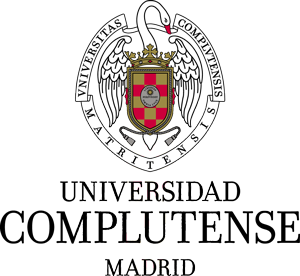
Universidad Complutense Madrid (UCM)
The Complutense University of Madrid is a Spanish public research university. Founded in Alcalá in 1293 (before relocating to Madrid in 1836), it is one of the oldest universities in Europe. It currently enrolls more than 90,000 students, and offers nearly 80 majors, 230 individual degrees, and 221 doctorate programs, with more than 30 libraries, and over 2 million works in print.
The Partner UCM of Repertorium is led by the Department of Musicology, which is compound by 23 internationally recognised scholars who are devoted to the study of the history and sciences of music, as well as 23 research personnel betwen research assistants, PhD funded students, and postdoctoral fellows. The Department of Musicology is located at the Faculty of Geography and History, offers studies on musicology at undergraduate, graduate and doctorate levels, and holds one of the best specialised libraries on music/musicology in the country, including a rich collection of music in different formats. The Department is recipient of multiple funded projects from private and public bodies, especially from the R&D national programme, and two ERC projects. It usually collaborates with other international projects.
The funcion of the Partner UCM in Repertorium is to scholarly oversee the correct execution of the tasks related to both medieval chant and 18th-century music, and to supervise and advise on the activities through a team of accredited researchers within the scientific, and academic community.
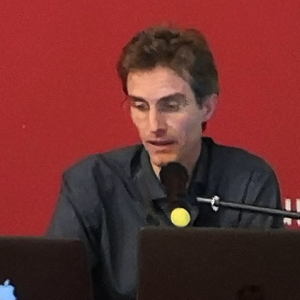
David Andrés Fernández
Senior Lecturer at the Deparment of Musicology, Complutense University of Madrid. He is also a Senior Honorary Research Associate at the University of Bristol. He is an expert on medieval and early modern plainchant and notation, and has extensively worked on Spanish and Latin America chant sources. He knows well the collection of images held at the Atelier de Paléographie Musicale of Solesmes, which is one of the main targets of the Repertorium project. He has been PI of R&D projects for the last decade, and he is also a senior researcher in the ERC Advanced Grant led by Carmen Julia Gutiérrez, a research collaborator in the Canadian DACT project led Jennifer Bain and Debra Lacoste, and an Advisory Board member of the IMS ‘Cantus Planus’ Study Group.
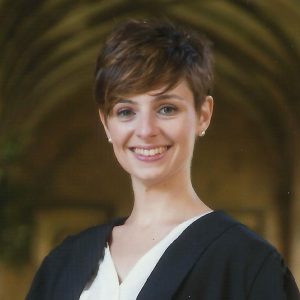
Ana Llorens
Ana Llorens combines the two perspectives of performer and musical researcher. After graduating from the Royal Conservatory of Music in Madrid in just two years, she continued her cello studies with Natalia Shakovskaya (Reina Sofía School of Music) and János Starker (Jacobs School of Music, Indiana University). She earned a Bachelor’s degree in History and Music Sciences from the Complutense University of Madrid, for which she was awarded the Extraordinary Prize for Academic Excellence at the national level. She also completed a Master’s degree (Master in Spanish and Latin American Music) at the same institution, focusing her Master’s thesis on the development of cello technique throughout the 19th century. With financial support from the “La Caixa” Foundation, Ana conducted her doctoral research at the University of Cambridge under the supervision of Prof. John Rink. Her thesis explored various strategies for the creation, rather than reproduction, of musical structure through performance, focusing on the Cello Sonatas by Johannes Brahms.
She is currently a postdoctoral fellow under the “Juan de la Cierva” program at the Complutense Institute of Musical Sciences, where she oversees the scientific supervision of the ERC DIDONE project. Her research as an investigator is focused on designing big data analytical models (corpus analysis) based on digital scores, with a special interest in analyzing the expression of emotions, harmonic language, and formal structures throughout the 18th century.
She has been a reviewer for international journals such as Musical Scientiae and Music Theory and Analysis. She is a member of the Board of Governors of the Spanish Society of Musicology.
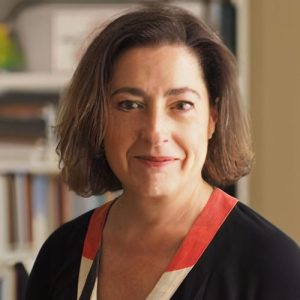
Carmen Julia Gutiérrez
Full Professor at the Department of Musicology, Complutense University of Madrid. She is an expert in medieval music, notation, and chant sources. She is familiar with the different types of musical notations that are expected to be cataloged in the medieval collections targeted by the Repertorium project. She is currently the PI of two national R&D project and leads an ERC Advanced Grant. She is also an Honorary Researcher at the University of Bristol and a collaborating researcher in the Digital Analysis of Chant Transmission project.
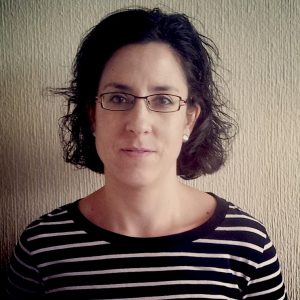
Judith Ortega Rodríguez
Senior Lecturer in Musicology. She is an expert in 18th-century court music and has extensively worked on the study and editing of musical sources. Her expertise will contribute to the treatment of the sources under study and the review of specialized databases. Among her works on 18th-century music, she has conducted research on sources and music copying, identifying different copyists’ hands at the Spanish court.
She has also published critical editions of both vocal and instrumental repertoire. She coordinated the publications of ICCMU from 2005 to 2019 and established the editing criteria for the opera arias in the Didone Project. She is a co-PI of the DEePMusic project.
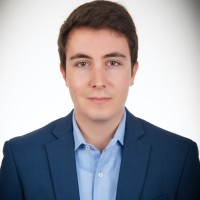
Antonio Olea Baeza
Research Assistant at the Department of Musicology and a Ph.D. student in Musicology at the Complutense University of Madrid. He holds a permanent contract under various research projects. He is involved in the analysis and indexing of plainchant sources from the Hispanic repertoire, and his expertise will be helpful in identifying sources from this specific repertoire.

Pablo Fernández Cantalapiedra
Research Assistant at the Department of Musicology. He also holds a permanent contract under several research projects. His knowledge and experience as the supervisor of the Spanish Early Music Manuscripts database (https://musicahispanica.eu/) will aid in the identification of musical sources from the Franco-Roman and Aquitanian repertoires. These repertoires are among several available at Solesmes.

Tampere University
Tampere University is one of the most multidisciplinary universities in Finland, bringing together research and education in technology, health and society. The university is known for its excellence in teaching and research, and it collaborates with hundreds of universities and organisations worldwide. Tuomas Virtanen leads the Audio Research Group, responsible for internationally renowned research in audio, speech, and music signal processing, focusing on content analysis of sounds, spatial audio, and source separation and signal enhancement. Their expertise in signal processing and machine learning algorithms will contribute to Repertorium’s objectives of creating real-time sound source separation tools that will underlie the immersive streaming solution. Realising these technologies for classical music signifies a giant leap in the field, and the resulting algorithms are likely to become core technology for many uses. One challenge for this area of research was the lack of appropriate training data for the AI models, something provided through this project. Tuomas Virtanen says, “It is really exciting to be able to develop source separation algorithms using the realistic classical music recordings professionally produced in the project. Material like this hasn’t existed before the project, and therefore, the results will be very interesting, both scientifically but also in practice.”

Tuomas Virtanen
Tuomas Virtanen (Fellow, IEEE) received a Doctoral degree from the Tampere University of Technology, Tampere, Finland, in 2006. He is currently a Professor at Tampere University, Tampere, Finland. He is known for his pioneering work on single-channel sound source separation using nonnegative matrix factorization and computational analysis of sounds in everyday environments. He has authored more than 200 scientific publications on these topics. He was the recipient of the IEEE Signal Processing Society 2012 Best Paper Award and ERC 2014 Starting Grant “Computational Analysis of Everyday Soundscapes” (based on this document published on 8 June 2022).
He leads the Audio Research Group.
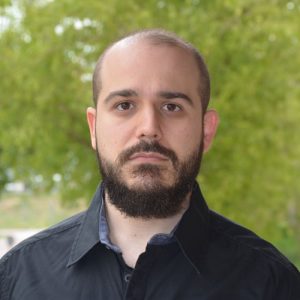
David Diaz-Guerra
David Diaz-Guerra studied telecommunications engineering at the University of Zaragoza (Spain), where he obtained his Ph.D. degree in March 2023 with his thesis on sound source localization and tracking with deep learning techniques. He is now a postdoctoral researcher at the Audio Research Group of Tampere University (Finland), where he works on sound source separation within the Horizon Europe project REPERTORIUM.

University of Alicante
The University of Alicante was created in October 1979 on the structure of the University Study Centre (CEU), which was started in 1968. It offers a full range of courses with more than 40 undergraduate degrees and 50 official master’s and doctoral degrees. The university’s Pattern Recognition and Artificial Intelligence Group is responsible for building Deep Learning models that will power Repertorium’s optical music recognition toolkits for medieval and classical musical notations. They provide a disruptive technology based on Artificial Intelligence that enables machines to read music scores. In the context of Repertorium, this is a great challenge because the machine does not only have to understand the music notation but also the lyrics to automatically interpret how they should be sung. Their years of extensive research in this field can finally contribute to the EU’s goals of preserving and promoting European cultural heritage.
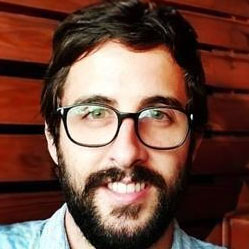
Jorge Calvo-Zaragoza
Dr. Jorge Calvo-Zaragoza is an Associate Professor at the University of Alicante. He received a degree in computer science in 2011 and a PhD in 2016 from the University of Alicante. From 2013 and 2017, he was a grantee of the University Teacher Training Programme (FPU) of the Ministry of Education of Spain. During this period, he carried out pre-doctoral stays in Malaga, Nantes, Vienna, Valencia and Montreal. He worked as a postdoctoral researcher at McGill University in Montreal for one year and at the Universitat Politècnica de València, with a Juan de la Cierva – Training contract from the Ministry of Economy, Industry and Competitiveness, for 8 months. He has been awarded the national prize “Premios de Investigación Sociedad Científica Informática de España (SCIE) – Fundación BBVA 2018” in the category “Jóvenes Investigadores Informáticos”, with the “Accésit AERFAI a la mejor tesis doctoral 2015-2016” by the Asociación Española de Reconocimiento de Formas y Análisis de Imagen, as well as with the “Premio extraordinario en Ingeniería en Informática” and “Premio extraordinario de doctorado” by the University of Alicante.
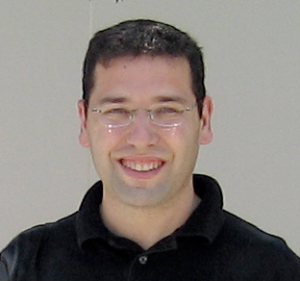
David Rizo
David Rizo obtained his Computer Science Engineer degree in 1996 and his Ph.D. in Computer Science in 2010 at the University of Alicante. He worked as a software engineer for 10 years in a series of companies, such as France Telecom, as Head of its website in Spain. Since 2004, he has been a tenured professor at the Higher Institute of Artistic Education of the Valencian Community (Spain). Since 2002, he also worked at the University of Alicante as a part-time lecturer.
His research focuses on different disciplines of computer music, all of them in the symbolic domain: similarity, analysis, and, more recently, encoding and optical music recognition. In these areas, he has published some 75 articles and communications, mainly in international conferences and journals. He has been a reviewer, program committee and organiser of various computer music-related conferences such as ISMIR, SMC, JNMR, MML, WEMIS, MusicCLEF, DLfM and MEC.
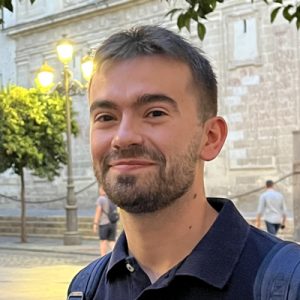
Juan Carlos Martínez Sevilla
Juan Carlos Martínez Sevilla is a Ph.D. student at the Pattern Recognition and Artificial Intelligence Group at the University of Alicante in Spain, working on Optical Music Recognition and Audio-to-Score algorithms. He studied Computer Science at the University of Alicante and a Master’s degree in Mobile Software Development. He finished his professional degree in music at the Ana María Sánchez Conservatoire in Elda, specialising in saxophone. Currently, he is a former member of the AMCE Santa Cecilia of Elda, which at 200 years old, is one of the oldest bands in Spain. He also plays in Idejazz Big Band and others while he studies clarinet at the AMCE Santa Cecilia. He has been part of the teaching team in the Music Information Retrieval course during the Transform4Europe week at the University of Alicante.
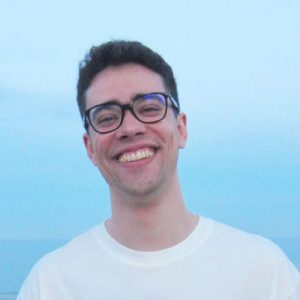
Eliseo Fuentes Martínez
Eliseo Fuentes Martínez is a Ph.D. student at the Pattern Recognition and Artificial Intelligence Group at the University of Alicante in Spain, working on Optical Music Recognition algorithms. He studied Computer Science at the University of Alicante and a Master’s degree in Artificial Intelligence. He finished his professional degree in music at the Vicente Lillo Cánovas conservatory in Sant Vicent del Raspeig (Alicante), specialising in piano. Currently, he continues playing the piano in his free time as a hobby and is actively involved in the musical scene of his former town.

Association Musicologie Médiévale
Association Musicologie Médiévale was founded in 2006 by Dominique Crochu and Dominique Gatté. In 2007, the Gregofacsimil website was launched, publishing a musical edition of the responsories found in the Hartker antiphonary by Dominique Crochu and the ‘Internet Manuscripts’ file developed by Dominique Gatté, which was to become MMMO in 2016.
In 2009, Dominique Gatté set up the “Musicologie Médiévale” network, bringing together over 3,000 members, researchers and performers. Since 2012, the Medieval Musicology Network has been a partner of DIAMM (Digital Image Archive of Medieval Music, Oxford Faculty of Music). In 2016, the Medieval Musicology Network took over from APEMUTAM’s “Medieval Music Forum”. 2016 also saw the creation of the MMMO Database (Medieval music manuscripts online database), part of the Cantus Index Network directed by Debra Lacoste (University of Waterloo).
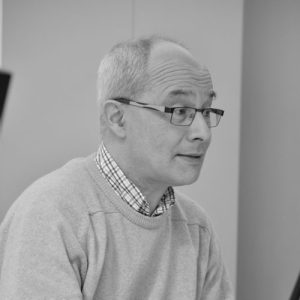
Dominique Crochu
Dominique Crochu is a medievalist, fellow liturgical connoisseur and co-director of the Musique Médiévale network. He began working with monks of Solesmes in 1980, where he learnt semiology at the musical Paleography workshop. He soon specialised in not yet published Old Font Gregorian repertory, especially the Office of Matins, for which, after the French Revolution, the habit was taken to recite instead of sing. His research allowed a decisive advance concerning the very delicate problem of the interpretation of B flat in Gregorian chant. He has collaborated, since 2005, with Dominique Gatté. Together, they have listed more than 8000 manuscripts and printed sources from the fifth to the eighteenth century. He also worked with Alberto Diaz-Blanco to digitalise and restore more than one thousand Gregorian vinylic, shellac and magnetic supports.
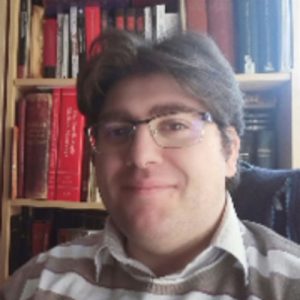
Dominique Gatté
Dominique Gatté specialised in Digital Humanities linked to medieval musicology. He completed his university studies in Strasbourg and holds a bachelor’s degree in theology and a master’s degree in interdisciplinary medieval studies. His research activities mainly focus on musical Paleography between the 9th and 12th centuries. In 2007, he co-created, with Dominique Crochu, the site Gregofacsimil, and he manages and administrates the network “Musicologie Médiévale”, which he created in 2009. In 2016, he created the MMMO Database (Medieval Music Manuscripts Online Database).
Dominique Gatté collaborates on many websites such as DIAMM (Digital Image Archive of Medieval Music, Oxford Faculty of Music); the “Gregorian Directory” of the Belgian Gregorian Chant Academy; the MUSICOMED – Labex Resmed – UMR IReMUS project (Paris-Sorbonne University); moreover, he is a very active contributor of the Cantus-Index website.
SPORK Digital
SPORK is an experienced team of software experts: developers, designers and strategists. They work with startups through to more established organisations and creative agencies, producing best-in-class web and mobile applications.

Giles Cambray
Founder and Director of Spork Digital – a tech consultancy based in London and Sheffield. Startup Founder who is interested in helping other startups with their MVP / Proof of Concept.
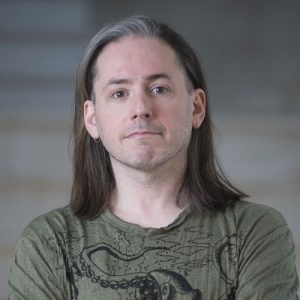
Philip Mud
Bio

Carmel Farquhar
Bio

Christopher Ditchburn
Bio

Gawain Hammond
Bio
vist.co kulturmanagement GmbH, Hamburg
vist.co is a creative marketing agency for music and related fields. vist.co creates stunning visuals for artists, ensembles, dance companies, orchestras, concert halls, theatres, opera houses and festivals while managing strategic planning. vist.co is in charge of PR, marketing, outreach, workshop coordination, social media, and public image for Repertorium.
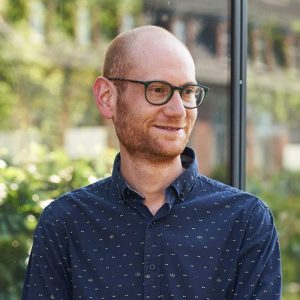
Luca Di Bernardo
vist.co Managing Director
Luca co-founded vist.co kulturmanagement GmbH, where he happily works as managing director
Previous work experience includes music:LX, the Luxembourgish music export office, where he worked as a project manager and developed the classical and contemporary music department while it was still a young organisation. He represented music:LX and its network of musicians and organisations internationally, collaborating with record labels, concert organisers and festivals, and he also organised the Luxembourg Classical Meeting. He also worked as a managerial assistant for Stage Door in Bologna, one of the world’s leading artist management agencies, and he had his first experience in music management at the “Teatro del Maggio Musicale Fiorentino” in Florence.
He holds a BA in trumpet from the Alfredo Casella Conservatory in L’ Aquila, an MA in trumpet from the Luigi Cherubini Conservatory in Florence and a Master of Performing Arts Management from Palazzo Spinelli in Florence.
He loves languages, as they are a way to understand different cultures. In addition to Italian, he speaks English and French, and he is busy fighting to learn German.
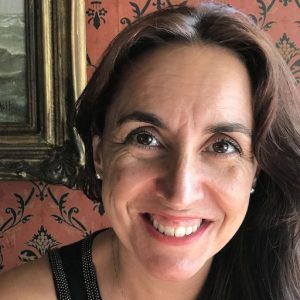
Alicia Gutierrez Vega
Repertorium Communications Manager
As a Marketing and Business Development Consultant, she has held positions of responsibility at Discovery Communications, Campofrío Food Group, Ubisoft, Unilever and Coca-Cola, among other companies. She has led the launch of the start-up Beatik and collaborates as Head of Business Development at the digital marketing services provider Flat 101.
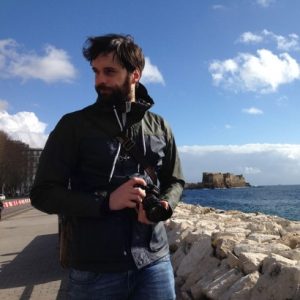
Tommaso Tuzj
Repertorium Creative Director
Tommaso Tuzj is the Creative Director as well as primary photographer/videomaker for the Hamburg-based marketing consultancy company “vist.co – The Visual Storytelling Company”. With a background in television, Tommaso Tuzj decided to dedicate himself to photography, opening Hoshi Studio in 2009 and working as Odradek’s primary photographer since Odradek’s opening in 2012. He brings with him his passion for photography and cinematography, with a constant search for new points of view. Alto Riot calls Odradek “a leader in visual identity… The genre as a whole can learn a lot from the art direction of Odradek Records. Their album art brings a sense of naturalness to their artist roster and, in a sense, a greater respect for their music and the listener.” Tommaso Tuzj was born in Italy, studied in Rome, lives in Pescara. He found his way when he was 20, and it was when he got his first camera that he started to be himself. From that day onwards, he never stopped taking photos.
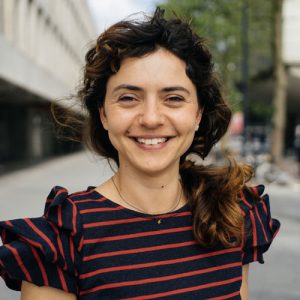
Andie Chantzi
Repertorium Communications Officer
Andie Chantzi has a linguistic and cultural formation, including BAs in French Studies (Aristotle University of Thessaloniki), in Hispanic Studies (Hellenic Open University), and an MSc from the Queen Margaret University Edinburgh, in Cultural Management & Policy. She is currently a Project Manager at Odradek Records and a Team Manager at Neumz (Odratek). Since 2014, she has been working as an independent cultural producer and cultural manager and has been involved in many national and international projects.
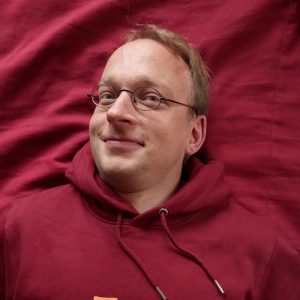
Burkhard Bartsch
Project Manager
Burkhard was born in Höxter, Eastern Westphalia (Germany). His life is found somewhere between these extremes: Unesco World Heritage Corvey (music festival) and One-Hit-Wonder-Classic-Stars (Major record label) / communist Luigi Nono (Archive) and profit-oriented MBA course / a small district city on the outskirts, and Germany’s biggest city with three opera houses. Burkhard has studied in Germany and Italy. He has a background in musicology, media and cultural studies and worked for more than a decade for the record label Deutsche Grammophon and its subsidiary, Archiv Produktion, where he oversaw a wide variety of audio and video projects from the initial idea through the actual recording to the finished product. During his childhood, he learned piano, clarinet and church organ; these days, he also loves Italy, his bicycle, his computer and technology in general.

Joanna Wyld
Editor
Joanna Wyld read Music at New College, Oxford, where she was an Instrumental Scholar. She was listed as one of the Women of Distinction in 25 Years of Women at New College and was the joint winner of the Oxford University Sinfonia Composition Competition. Joanna achieved a Master’s degree (MMus) from King’s College, London and studied flute at the Royal Academy of Music. Joanna has written notes for numerous artists, including the BBC Orchestras, RPO, RLPO, LSO, Hallé, Barbara Bonney, Nicola Benedetti, and the Labèque sisters. Joanna won the 2014 OUP spoof Grove Dictionary article competition, also winning the second and third runner-up places.
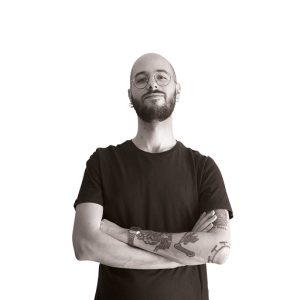
Marco Antonetti
Designer
Marco is a graphic designer, illustrator and social media manager. After a bachelor’s degree in Graphic Design from the European University of Design, he worked as an employee for private clients and agencies; he currently works as a freelance graphic designer for different clients active in music, food business and more.
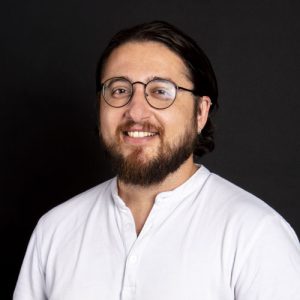
Giuseppe Treppiedi
Webmaster
Web designer and videomaker with a passion for art, technology, and all things nerdy in just the right way. He embarked on an artistic journey studying Media Art at the Academy of Fine Arts in Frosinone. He ventured into entrepreneurship as the Co-Founder of a communication agency Prezzemolo Studio. Recently He became part of the dynamic team at Vist.co, where he takes on the roles of Web Designer, Webmaster, and provides valuable support to the Video Team. His brain is a concoction of HTML, CSS, and a few JavaScript spells, obsessed with aesthetic and seamless functionality. Beyond keystrokes and mouse clicks, he is also a passionate drummer. Always on the lookout for new challenges and innovative ideas.

Asociación Hispana para el Estudio del Canto Gregoriano
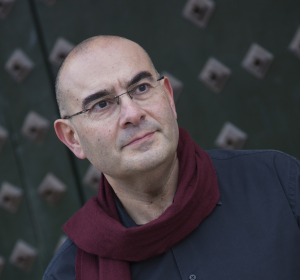
Juan-Carlos Asensio
His early studies at the choir school of the Benedictine Abbey of Santa Cruz del Valle de los Caídos were continued at the Royal Conservatoire in Madrid. He is a contributor to the Répertoire International des Sources Musicales (RISM); he has published numerous articles on the Códice de Madrid and the Las Huelgas Codex, and he has published a monograph for Alianza Editorial entitled El Canto Gregoriano. Asensio continues to collaborate with the Atêlier de Paléographie Musicale at Solesmes, and in Salamanca, he served as Professor of Musicology at the Royal Conservatoire.
Asensio currently holds dual appointments as Professor of Musicology at both Barcelona’s Escola Superior de Músicade Catalunya and Madrid’s Royal Conservatoire. He has directed Schola Antiqua since 1996, and since 2001, he has been a member of the Consiglio Direttivo of AISCGre. In addition, he is a research associate with CILengua, a member of the study group Bibliopegia, editor of the scholarly journal Estudios Gregorianos and a member of the Ecclesiastical Sciences Academy of San Dámaso.
Lithuanian National Philharmonic Society
It oversees the Lithuanian National Symphony Orchestra, which will test the immersive streaming tools developed by Repertorium in a live-streamed concert in autumn 2025.
Established in 1940, the Lithuanian National Philharmonic Society (LNPS) remains the largest and oldest state-owned concert organisation in Lithuania, whose main activity is to organise and coordinate live concerts, diverse classical/classical contemporary/jazz music events and tours throughout Lithuania and abroad. In July 1998, the LNPS was officially granted the status of national cultural institution. Since 2006 Rūta Prusevičienė has served as its Director General.
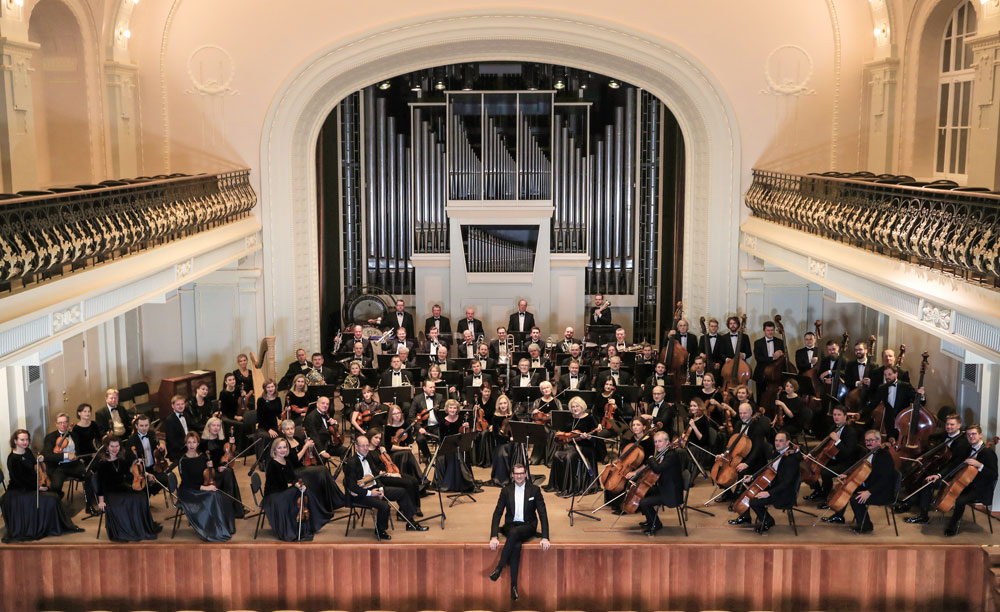
Over the eight decades of its activity, it has been committed to nurturing Lithuania’s musical culture and performing arts; to making the treasures of classical and contemporary music accessible to the local audiences; and to ensuring the highest standard of artistic excellence demonstrated by the soloists, orchestras and ensembles it represents. Among its primary goals is to promote the art of Lithuanian musical performers and composers by organising and presenting new musical programmes in Lithuania and abroad each year.
The LNPS has its headquarters in Vilnius (with the Main Auditorium of 684 seats and the Chamber Hall of 150–180 seats). Its concert season normally extends from September through May in Vilnius and during the summer months in other localities.
The Society’s diverse activities fall into three broad categories:
Management and promotion
The LNPS is home to its resident orchestras (Lithuanian National Symphony and Lithuanian Chamber orchestras), ensembles (Vilnius String Quartet, Čiurlionis Quartet and Musica Humana Ensemble), as well as a number of individual ensembles and soloists who are not employed by the Philharmonic Society.
Concert agency and venue
The LNPS organises 400–600 events per year in various venues located in Vilnius and throughout Lithuania, including orchestral and chamber concerts, recitals, portrait concerts, concert series and festivals (incl. the annual Vilnius Festival, biannual Vilnius Piano Festival, and the Kuronian Spit Festival at the Baltic Sea)
Booking agency
The LNPS acts as a booking agency for visiting international performers, specialising in early, classical and contemporary music. The most prominent international performers and orchestras are invited to give concerts in Lithuania, including the London Symphony Orchestra under Valery Gergiev, Schleswig-Holstein Academy Symhpony Orchestra under Christoph Eschenbach, Deutsches Sinfonie-Orchester Berlin under Ingo Metzmacher, Royal Philharmonic Orchestra under John Axelrod, cellist David Geringas, violinist Gidon Kremer, soprano Violeta Urmana, conductor Riccardo Muti and the Filarmonica della Scala, composer and conductor Krzysztof Penderecki, jazz celebrities Al Di Meola, Al Jarreau, Chick Corea, Herbie Hancock, Dave Brubeck, Wynton Marsalis, and many more.
International Collaboration
The LNPS participates in diverse national and international projects and programs and collaborates with various cultural organisations.The LNPS is an active member of the Lithuanian Association of National Institutions, and a number of international organisations, including EFA (European Festival Association), ISPA (International Society for the Performing Arts), Nordic-Baltic Association of State Concert Institutions, and PEARLE (Performing Arts Employers Association League Europe).





